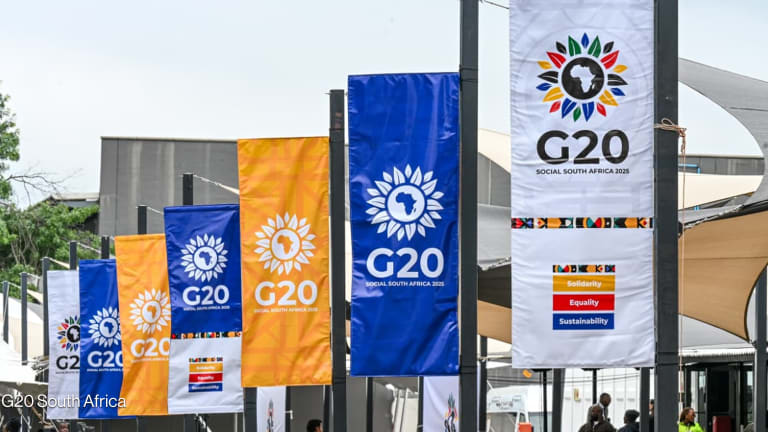What does the United States' G20 presidency mean for the world?
As South Africa’s G20 presidency came to a close, the country’s leader — Cyril Ramaphosa — tapped the ceremonial gavel before him. In a typical year, he would have handed it to the next country to take over the G20 presidency: the United States. But with no American official in the room, the gavel had nowhere to go.
“At the heart of our presidency lies a conviction that the G20 must act boldly, and act together, to create an environment of inclusive growth, reduced inequality and sustainable development,” said Ramaphosa, speaking just before his time at the helm ended. “Together, we can ensure that no one is left behind.”
It was a symbolic end to a year centered on the priorities of the global south — and a prelude to a very different G20 presidency under the United States. Every year, the leader of the Group of 20 largest economies changes, leaving it up to that nation to set the agenda, shepherd negotiations, and push for the outcomes it wants the G20 to champion.
Search for articles
Most Read
- 1
- 2
- 3
- 4
- 5








